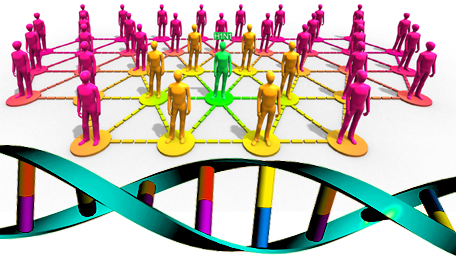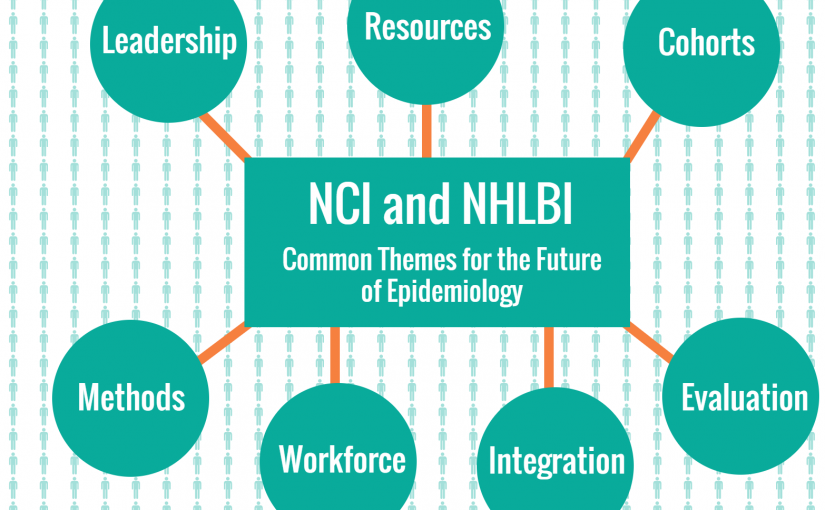Category: precision medicine
Cancer Precision Medicine: More Population Sciences Ahead!

We explore briefly the expanding role of population sciences in the implementation of the NIH Precision Medicine Initiative (PMI). The initiative includes a major component on cancer precision treatment, and a large scale cohort study program to generate knowledge applicable to all areas of health and disease, including cancer risk factors and outcomes. Genomics is Read More >
Posted on byPrecision Medicine: the Arrival of Genomics to the Clinic is the Beginning of a Longer Journey

It has been a year since the announcement of the new US Precision Medicine Initiative. As new funding is awarded to investigators across the country, the pace of assembling the cohort of a million or more individuals will accelerate. This cohort will link information from genomic, behavioral, social, environmental, and health outcomes to discover and Read More >
Posted on byPublic Health Genomics 2015: Looking Back, Looking Ahead

In 2015, the United States launched the precision medicine initiative that includes a cancer component and a national cohort research study of one million or more people. While much of this initiative will take years to develop outputs for use in health care, a public health perspective is crucial to ensure the initiative’s success in Read More >
Posted on byEngaging Implementation Scientists in Precision Medicine

From the State of the Union through a number of NIH-led workshops to a report from the Advisory Committee to the NIH Director [PDF 1.05 MB], and the recently launched NIH funding announcements, the Precision Medicine Initiative has the potential to reimagine how we can use information on our biology, our environment, our experiences, our Read More >
Posted on byGenomic discoveries to clinical applications: Are we reaching an inflection point toward precision medicine?

Each year at the annual American Society of Human Genetics (ASHG) meeting I follow certain rituals. During the first “poster session”, I quickly peruse all of the vendor booths on the floor to assess something of the overall flavor of the commercial space’s focus. During the next two poster sessions I cruise all of the Read More >
Posted on byPrecision Medicine vs. Public Health: a False Dichotomy?

The recent focus on precision medicine has attracted criticism from the public health community that firmly believes that health is determined by far more than health care, and that more sophisticated medical technologies may not adequately address important determinants of population health. There is no argument that a focus on the wider environmental, structural and Read More >
Posted on byInfectious Diseases: Precision Medicine for Public Health

Until now, most medical treatments have been designed for the “average patient.” As a result of this “one-size-fits-all” approach, treatments can be very successful for some patients but not for others. Precision Medicine, on the other hand, is an innovative approach that takes into account individual differences in people’s genes, environments, and lifestyles. The Precision Read More >
Posted on byThe Future of Epidemiology in the Age of Precision Medicine: Cancer, Cardiovascular Disease, and Beyond

We live in the era of “Big Data.” Evaluating the health impact of large scale biological, social, and environmental data is an emerging challenge. Epidemiology, the study of the distribution and determinants of human disease in populations, is a foundational science of public health and provides important insights for medical practice and disease prevention. Epidemiology has Read More >
Posted on by 1 CommentPrecision Medicine and Public Health: Improving Health Now While Generating New Knowledge for the Future

In a previous post, I commented on the importance of a public health perspective to ensure the success of the proposed precision medicine large national research cohort. Here I offer additional thoughts on the need to balance short term public health gains with long term knowledge generation from this effort. Read More >
Posted on byUsing Genomics in Precision Prevention of Breast Cancer

Breast cancer is the most common cancer in women in the United States. It is estimated that 3%-5% of breast cancer cases are hereditary, most often involving mutations in BRCA1 and BRCA2 genes. Such mutations confer high lifetime risk of breast and ovarian cancer. The United States Preventive Services Task Force has issued specific recommendations Read More >
Posted on by

